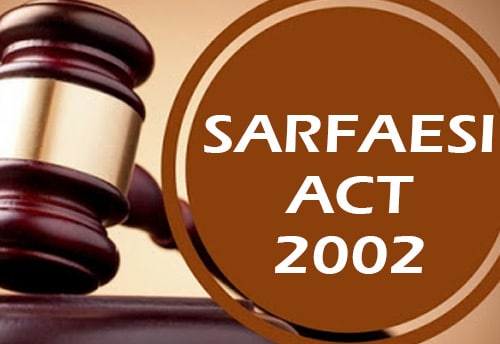How Banks Misuse SARFAESI ACT Provisions For The Loan Recovery?

Bank- The Safest Custody
Upgrading from the barter system in ancient times, a bank is a financial institution that takes care of customer’s money in different types of accounts safely. The customers withdraw and deposit cash in banking hours. It gives them an interest in keeping their money protected in banks quarterly. Banking is a customer-oriented service industry managing different diversified services like loans, bonds, fixed deposits, credit cards, etc. Different teams are handling and playing a vital role to perform many responsibilities. It is regulated and centralized by the RBI- Reserve Bank of India which issues and supplies the Indian rupee.
Loans
A Loan is a process of lending money to a person, organizations or any other entities, etc. The borrowers are then liable to pay back the loan amount (principal) with interest until they are debt-free to the lender. The loan amount, rate of interest and term of recovery is decided as per the rules of the industry. There are different types of loans that the banks lend to borrowers like:
·Secured loan– when a borrower pledges its asset as collateral against the principal. Its examples are shares, bonds, property, etc.
· Unsecured loan: when no borrower’s assets are pledged against the monetary loan. Its examples are credit, personal, etc.
Debt/Loan Recovery –
Debt collection is done by the lender and follows the strict protocol to recover the debt amount. This situation arises when the borrower fails to repay the debt on time as per the agreement signed between two parties. Once the borrower becomes a defaulter, its credit score is affected badly.
· There are many loan recovery agencies to establish such recoveries and a third-party collector is appointed to collect debts from a debtor.
· A 30-day repayment plan is set up for the borrower for paying back the unpaid amount.
· Proper documentation between the collection agency and the debtor is agreed upon.
SARFAESI ACT 2002 – Securitisation Companies and Reconstruction Companies (Reserve Bank) Guidelines and Directions
SARFAESI Act is a problem solver for all NPAs (Non-Performing Assets) or bad assets which do not sound financially well. The act helps financial institutions in multiple ways to ensure asset quality and it is regulated by RBI.
The main aim of the SARFAESI Act is to regulate the reconstruction and securitization of financial assets and enforcement of security interests. It also provides a central database and three important tools for recovery of NPAs:
a) Asset Securitization
b) Reconstruction of assets
c) Enforcement of securities (when a court is not intervened)
SARFAESI Act- An Agent misused by Banks? –
The SARFAESI Act is a role model of loan recovery:
a) An agent by banks or financial institutions
b) As a manager for secured assets
c) As a receiver appointed by a court
There is a subsection 17 in the SARFAESI Act under which the borrower can raise his objections in front of the Debt Recovery Tribunal’ given him a chance to represent his case. Then, the bank case is handled by a special legislative set-up managing it to recover its dues with all fairly means as every bank is supposed to act on fair means.
How banks misuse SARFAESI Act –
There can be a case when a bank misuses or plays unfairly with the borrower to collect its dues.
· The borrower may agree for ‘One Time Settlement (OTS)’ with a bank and also repay the full amount.
· The bank sends the message that the OTS is canceled as it was not according to the protocols.
· Then the borrower receives a notice under section 13(4) of the act. It is an unfair practice on part of the bank for denying OTS once due is received.
Conclusion –
Likewise, the borrower must be facing the difficulties in the recovery of its debt if the bank is misusing the provisions of the SARFAESI Act in loan recovery. Playing unfair means by any of the parties, debtor or creditor will never be fruitful. The result will be non-justified.
· Seeking the Banking Ombudsman’s intervention may result in distress asset closure between the bank and the borrower. This is the authority that settles down the consumer complaints.
· RBI must ensure that OTS is exhausted before opting for the SARFAESI Act.
· Recovering dues with lawful ways, this helps in making the economy mechanism strong and stable.